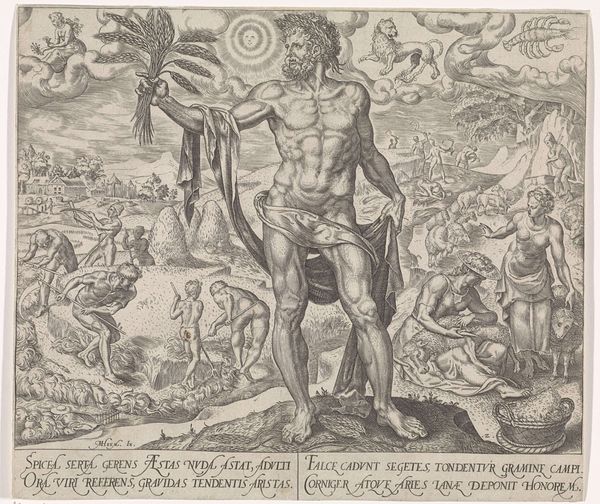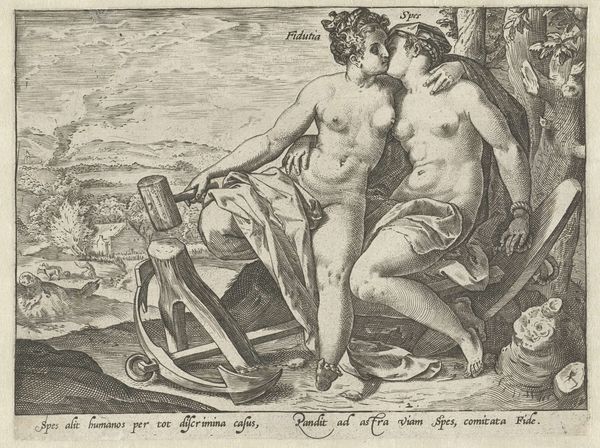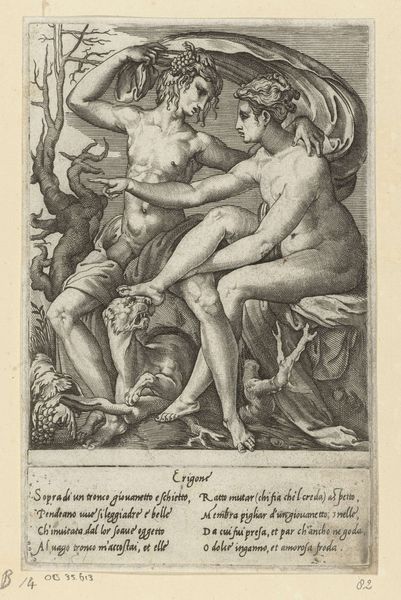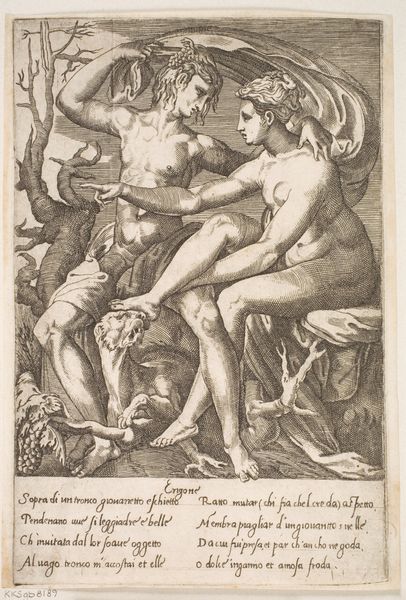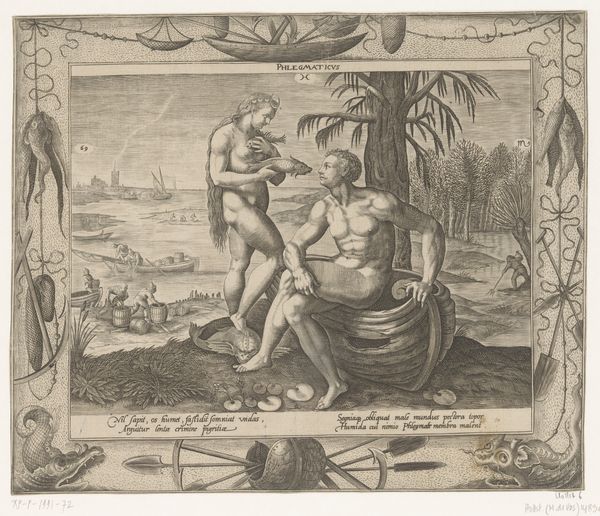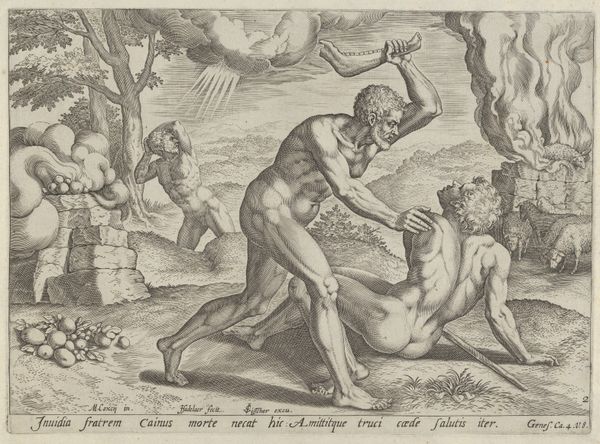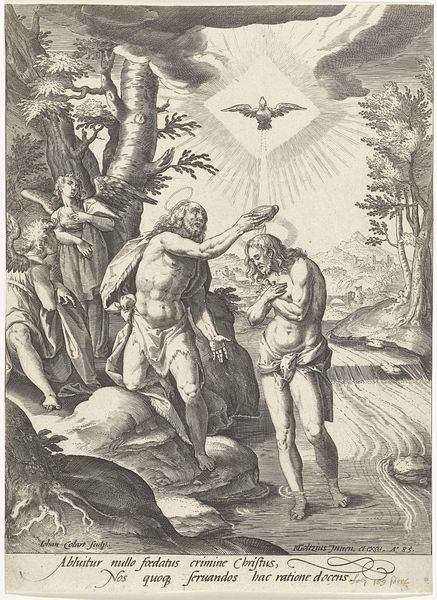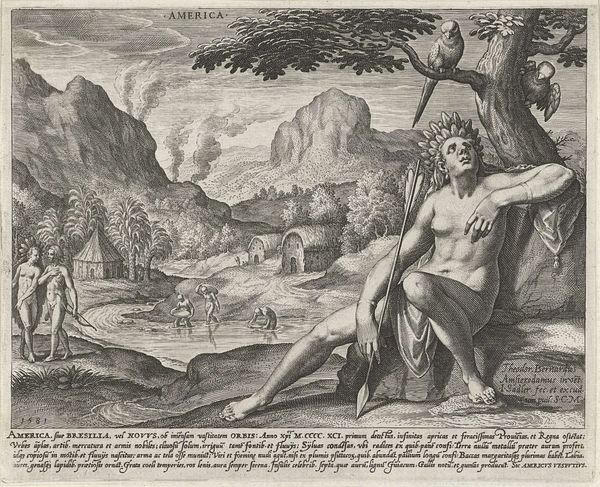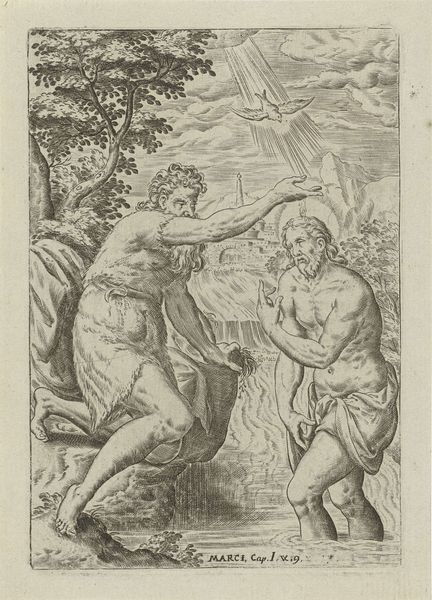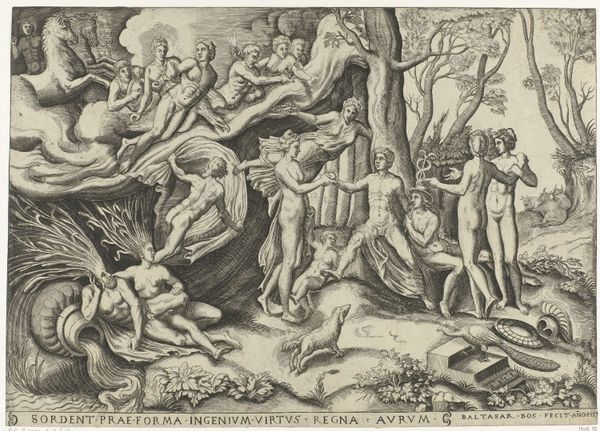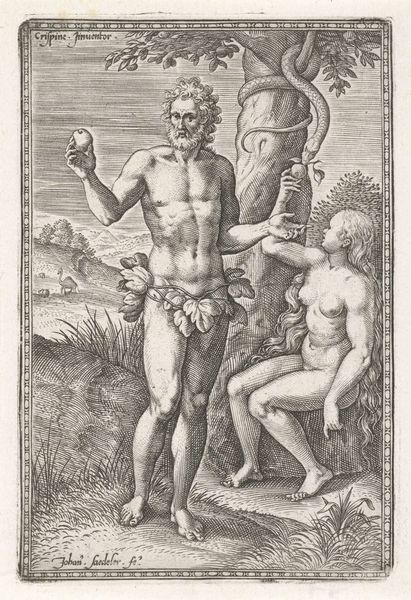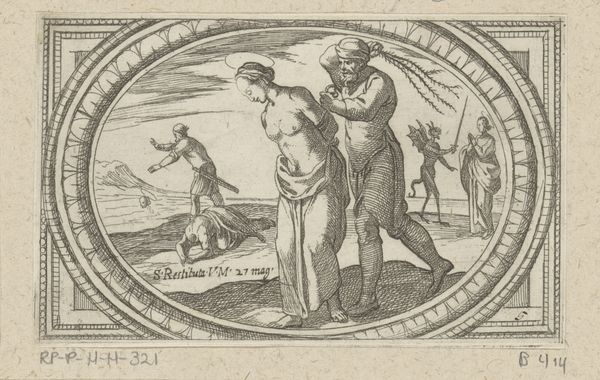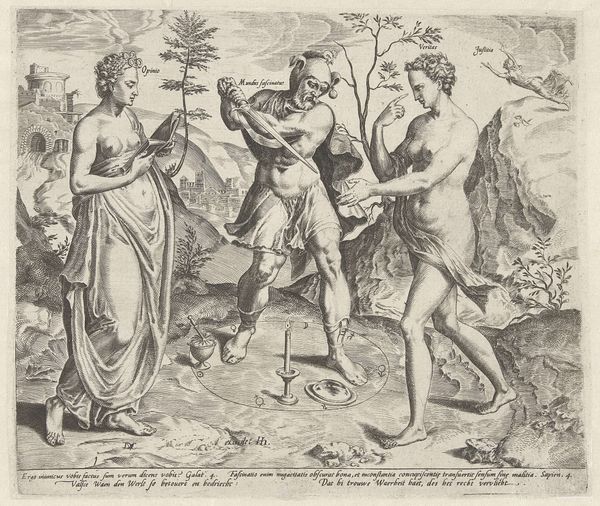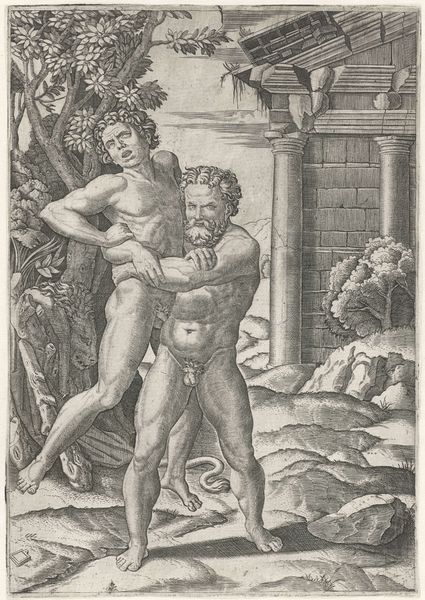
print, engraving
#
baroque
# print
#
old engraving style
#
figuration
#
history-painting
#
northern-renaissance
#
nude
#
engraving
Dimensions: height 181 mm, width 218 mm
Copyright: Rijks Museum: Open Domain
Jan Collaert II created this engraving, "Phoebus informs Vulcan of his wife's adultery," sometime between 1566 and 1628. Rooted in classical mythology, it offers a glimpse into the social mores and gender dynamics of the early modern period. The scene captures the moment Phoebus, the sun god, reveals the infidelity of Venus, Vulcan's wife. We see Vulcan, the blacksmith god, confronted with this knowledge. Around him, his workshop bustles with activity, a stark contrast to the stillness of his seated figure and his moment of realization. The choice to depict these gods as nude figures speaks to the era's fascination with classical ideals of beauty and heroism. However, it also invites us to consider the vulnerability of these figures stripped bare, not just physically but emotionally. The image grapples with themes of betrayal, power, and the public shaming of private matters. The act of infidelity, often framed as a personal failing, becomes a spectacle, reflecting societal anxieties about women’s sexuality and marital fidelity. In the end, Collaert invites us to reflect on the personal and the political.
Comments
No comments
Be the first to comment and join the conversation on the ultimate creative platform.
